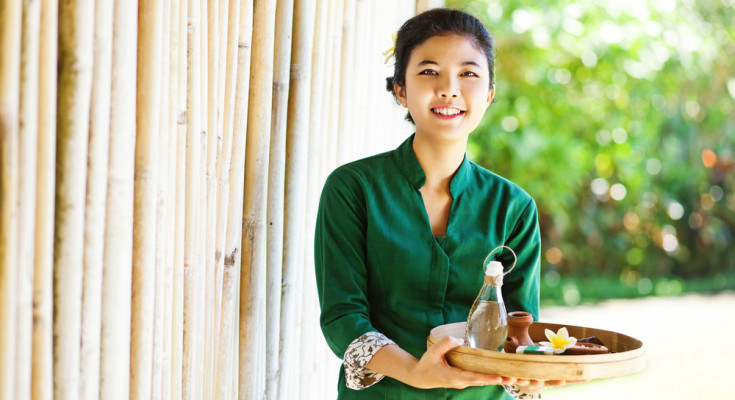By: Degung Santikarma
|
In the absence of health insurance or government medical services, getting sick in Indonesia can be truly painful. Not only do doctors insist on injections for virtually every malady, but they stick you even harder where it really hurts: not just in your backside but your bank account. Luckily, in Bali one can avoid onerous examinations, long scientific explanations, treatments with tongue-twisting names-and extortionist doctors’ bills-by following some simple, time-tested remedies. Be warned: I’m not talking about the ‘ancient local healing secrets’ or ‘indigenous alternative bodywork therapy’ advertised by the New Age press or the modern traditional spa. These kinds of cures are not found in the sacred lontar books or in accounts of the royal heritage of Bali’s courts. They are pure populist know-how, passed down from the elders to their ill young as part of the everyday attempt to get by. For example, if you wake up in the morning with a stiff neck, you don’t need to seek out a specialist. You just need to shrug your shoulder three times against the wooden beam of a rice barn. If your eyes are red and raw from dust or infection, you don’t have to visit the pharmacy for eyedrops. Scoop up a handful of urine and rinse your eyes until the irritation eases. And if you’re waking up in the middle of the night with a frequent need to urinate, try tying a piece of wild grass around your big toe. People swear that it will return your bladder to normal. How about a case of boils? The classic cure is to ‘sell’ them by taking a coin and rubbing it over the afflicted area. The coin is then dropped in the road for a passerby to pick up. Once this unlucky person palms the coin, they’ve ‘bought’ the boils, which will appear on their body and disappear from that of the ‘seller.’ These home-spun cures can even take care of many modern problems. Have you turned the color of turmeric from an infection with hepatitis? Try the time-honored therapy of eating ground-up head lice (if you don’t have any of your own, a friend’s or neighbor’s will do). Balinese medicine is especially rich when it comes to pediatrics. If your child is late in talking, you don’t need to consult with a fancy developmental specialist. Just scrape off a sliver of wood from the kulkul drum hanging in your neighborhood banjar meeting hall and stick it on the child’s neck. Within a few days, you’ll be trying to get him or her to shut up. If your child is late in walking, swat their backside and legs with a switch of kayu iyeng-iyeng, a kind of bushy plant that grows along the riverbanks. If your child has the hiccups, pick up the mat that they sleep on and plaster it for a moment to the bridge of their nose. And if your child falls and cuts their leg, don’t bother with antibiotics. Just find a black dog with a black tongue and persuade the beast to lick the wound clean. But if none of these cures work, don’t blame me. For Bali is also known for its firm belief in karmapala. Meaning, life and death are up to fate, not just the marvels of medicine. |
First published in Latitudes Magazine














